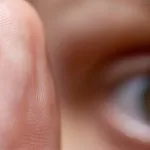
Understanding the Causes of Eye Twitching
Introduction:
Eye twitching, also known as eyelid twitching or myokymia, is a common condition that can be quite bothersome. It is characterized by involuntary spasms or twitches of the eyelid muscles. In this article, we will explore the various factors that can contribute to eye twitching, helping you understand its causes and potential remedies.
1. Stress and Fatigue
One of the most common causes of eye twitching is stress and fatigue. When we experience high levels of stress or are sleep-deprived, our bodies may react with muscle contractions, including those in the eyelids. Managing stress through relaxation techniques, getting sufficient rest, and adopting healthy sleep habits can help alleviate eye twitching associated with these factors.
2. Eye Strain and Digital Eye Fatigue
Prolonged periods of focusing on digital screens, reading, or driving can strain the eye muscles, leading to eye fatigue and twitching. This is particularly common in the digital age when many people spend long hours in front of screens. Taking regular breaks, practicing the 20-20-20 rule (looking at something 20 feet away for 20 seconds every 20 minutes), and ensuring proper lighting and ergonomics can help reduce eye strain and minimize eye twitching.
3. Caffeine and Alcohol Consumption
Excessive consumption of caffeine or alcohol can contribute to eye twitching. Both substances can interfere with the normal functioning of the nervous system, leading to muscle spasms, including those in the eyelids. Moderating your caffeine and alcohol intake or avoiding them altogether may help reduce the occurrence of eye twitching.
4. Dry Eyes
Dry eyes occur when the eyes do not produce enough tears or the tears evaporate too quickly, resulting in dryness, irritation, and potential eye twitching. Factors such as environmental conditions, extended screen time, certain medications, and underlying medical conditions can contribute to dry eyes. Using artificial tears, taking regular breaks to rest your eyes, and ensuring proper humidity in your environment can help reduce eye twitching associated with dry eyes.
5. Nutritional Deficiencies
In some cases, nutritional deficiencies, such as insufficient magnesium or potassium levels, can contribute to eye twitching. These minerals play important roles in muscle function and nerve conduction. Maintaining a balanced diet rich in fruits, vegetables, and whole grains can help ensure adequate nutrient intake and reduce the likelihood of eye twitching due to deficiencies.
6. Allergies and Eye Irritation
Allergies and eye irritation caused by allergens, such as pollen or dust, can trigger eye twitching in some individuals. The release of histamines in response to allergens can lead to inflammation and muscle spasms, including those in the eyelids. Managing allergies through avoidance of triggers, using allergy medications as recommended by a healthcare professional, and maintaining a clean environment can help get rid of eye twitching associated with allergies.
7. Eye Infections or Eye Surface Conditions
Eye infections, such as pink eye (conjunctivitis), or certain eye surface conditions, like blepharitis or corneal abrasions, can cause eye twitching. These conditions result in inflammation and irritation of the eyes, leading to involuntary muscle contractions. Seeking prompt medical attention, following proper hygiene practices, and adhering to prescribed treatments can help prevent eye twitching caused by infections or surface conditions.
8. Underlying Medical Conditions
In rare instances, eye twitching can be a symptom of an underlying medical condition, such as facial nerve disorders (hemifacial spasm) or movement disorders (dystonia). If eye twitching persists or is accompanied by other concerning symptoms, it is advisable to consult a healthcare professional for a comprehensive evaluation and appropriate diagnosis.





